Photo Contest Winners
After receiving 371 photos submitted from around 140 photographers across the Asia-Pacific region, the APAN Photo Contest 2014 Judging Panel and the general public have made their decisions!
APAN Judges 1st Prize (US$500): "Water Scarcity" by Dilip LOKRE (India)
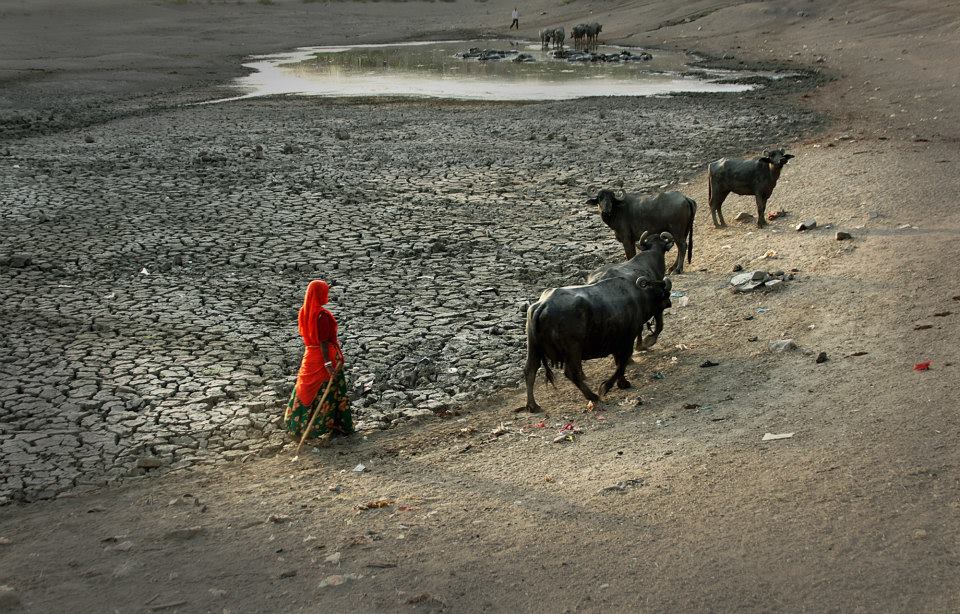
The photo of a rural lady in India taking her cattle to a dried pond highlights an impact of climate change – water security
APAN Judges 2nd Prize (US$250): "Sea Erosion" by SL Shanth KUMAR (India)
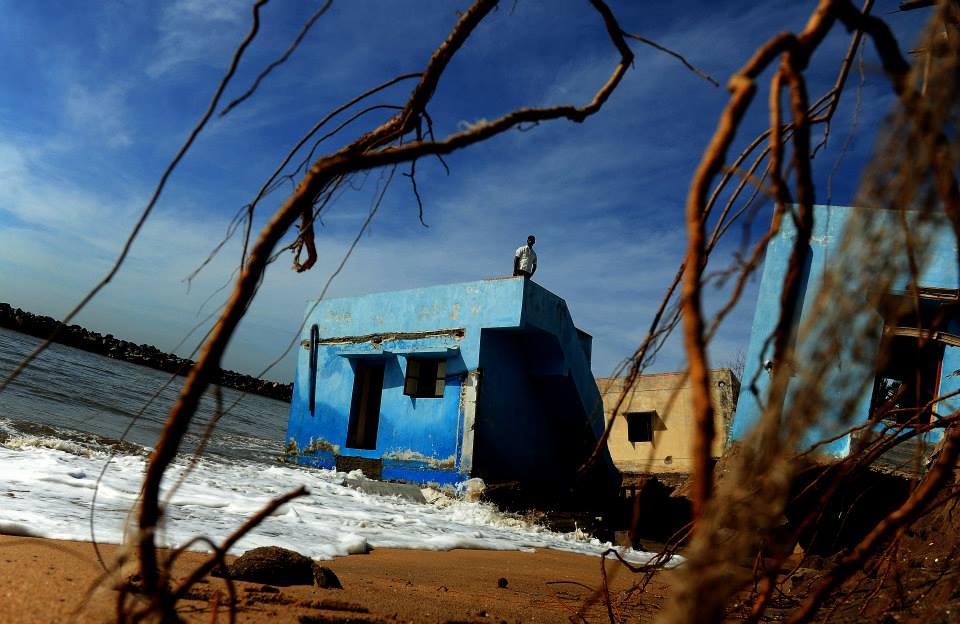
The photo of an old, abandoned building eroding on the beach was taken in Chennai, India.
APAN Judges 3rd Prize (US$100): "Human within Ocean and Sky" by Van Thanh PHAM (Vietnam)

The photo of sandbags on the beach was taken in the coastal city of Phan Thiet in Vietnam.
Popular Choice Award winner (US$250): "Harvesting Rice Using a Boat" by Aji Styawan (Indonesia)

This photo shows a woman farmer in Indonesia adapting and harvesting rice using a boat, due to heavy rainfalls flooding the rice fields. Climate change is changing the agricultural sector in Indonesia.
Congratulations to all our winners! And big thanks to all the photographers who have participated in the contest – you have helped us better understand climate change adaptation.
Top Ten
[ See the photos on our Facebook ]
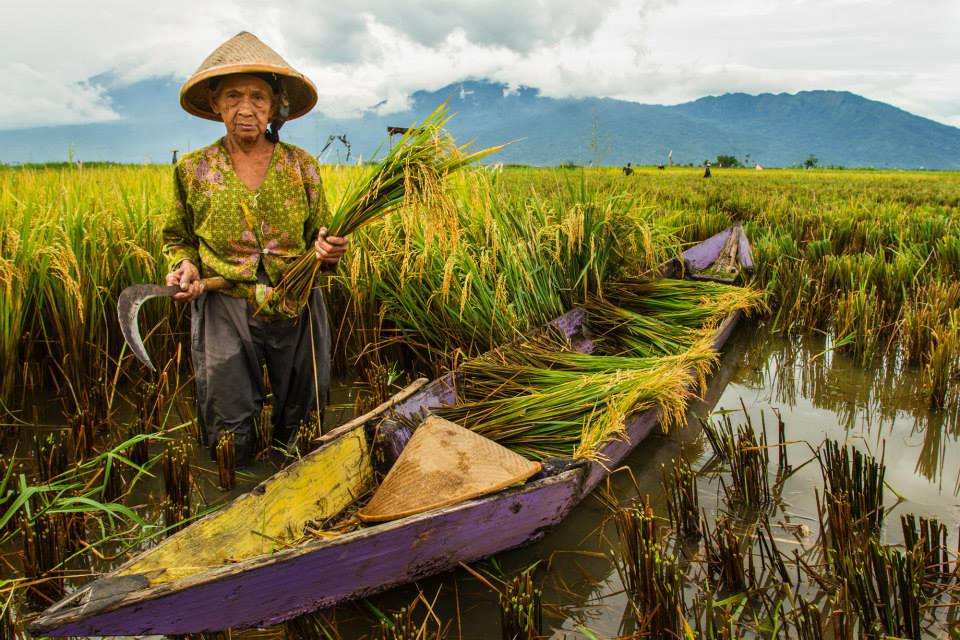
Harvesting Rice Using a Boat – Aji STYAWAN (Indonesia)
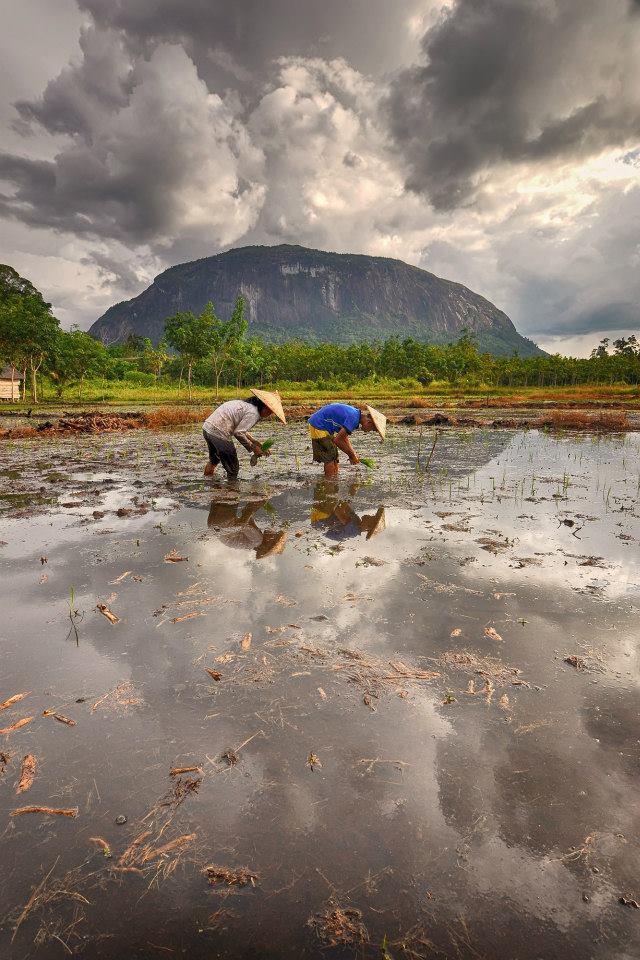
Planting Rice – Danang SUJATI (Indonesia)
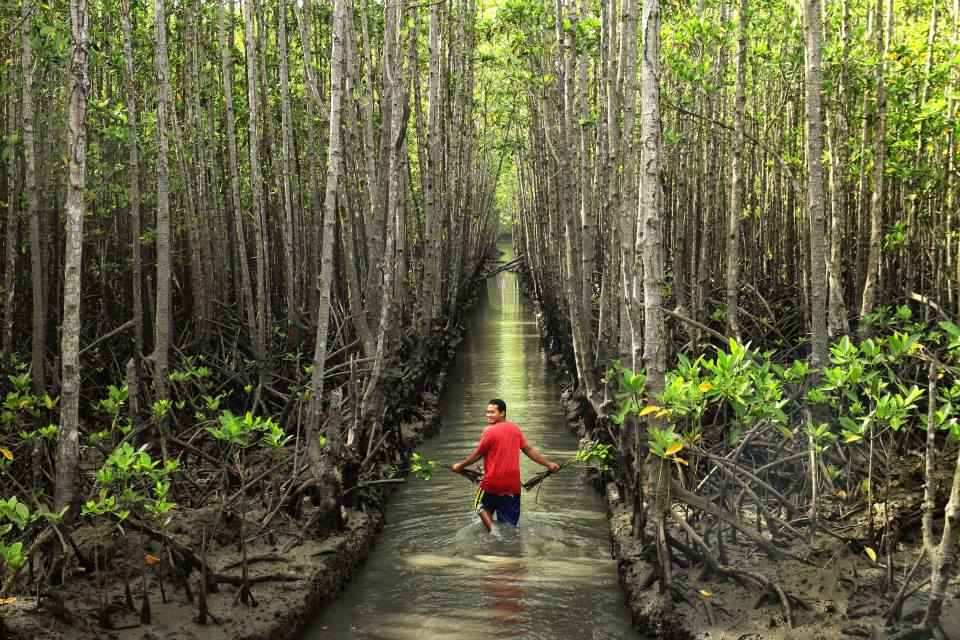
Bakhawan Eco-Park – Danilo O. VICTORIANO JR. (Philippines)
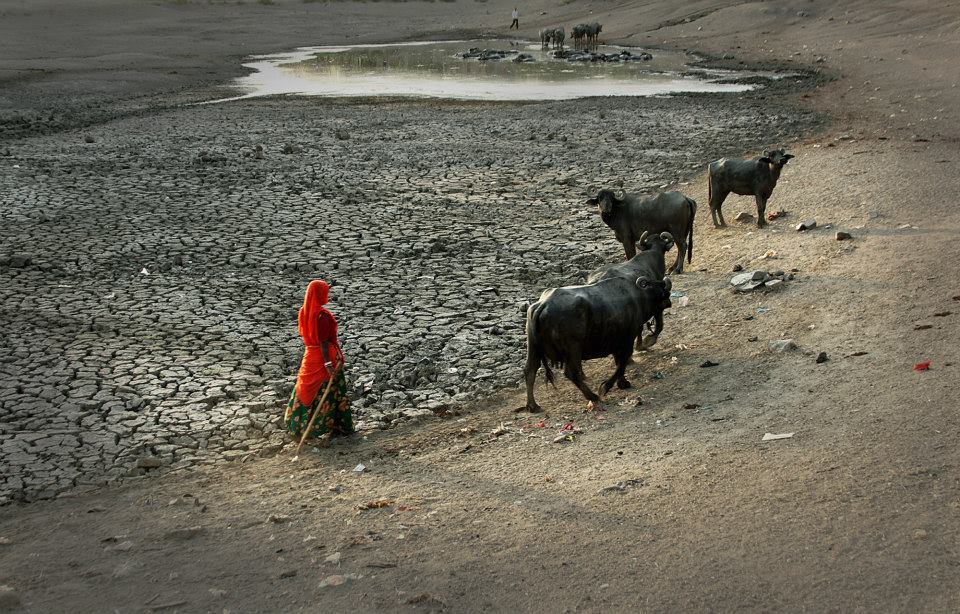
Water scarcity – Dilip LOKRE (India)
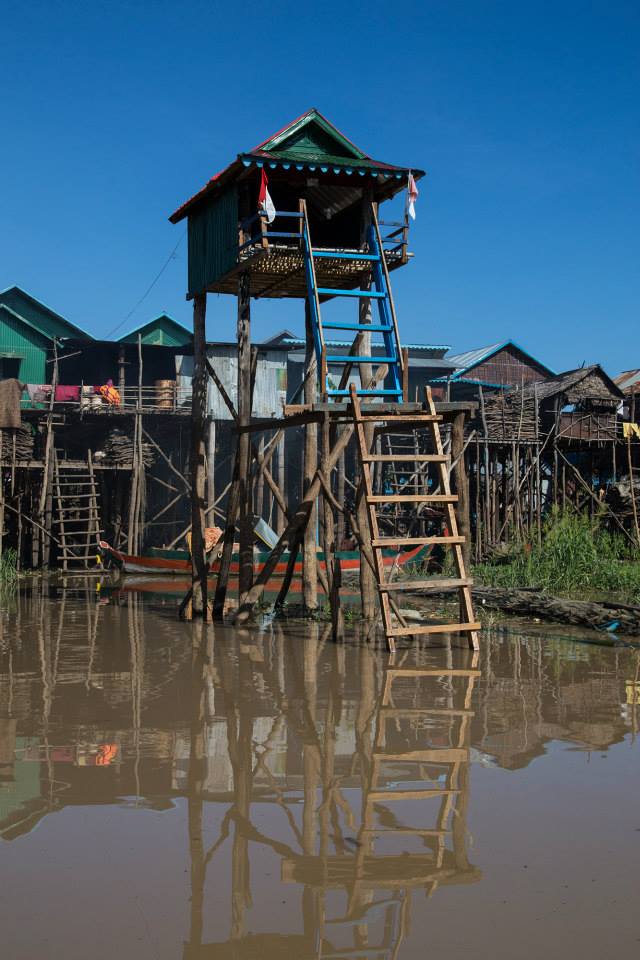
Tonle Sap Stilt House – John LANDER (United States)
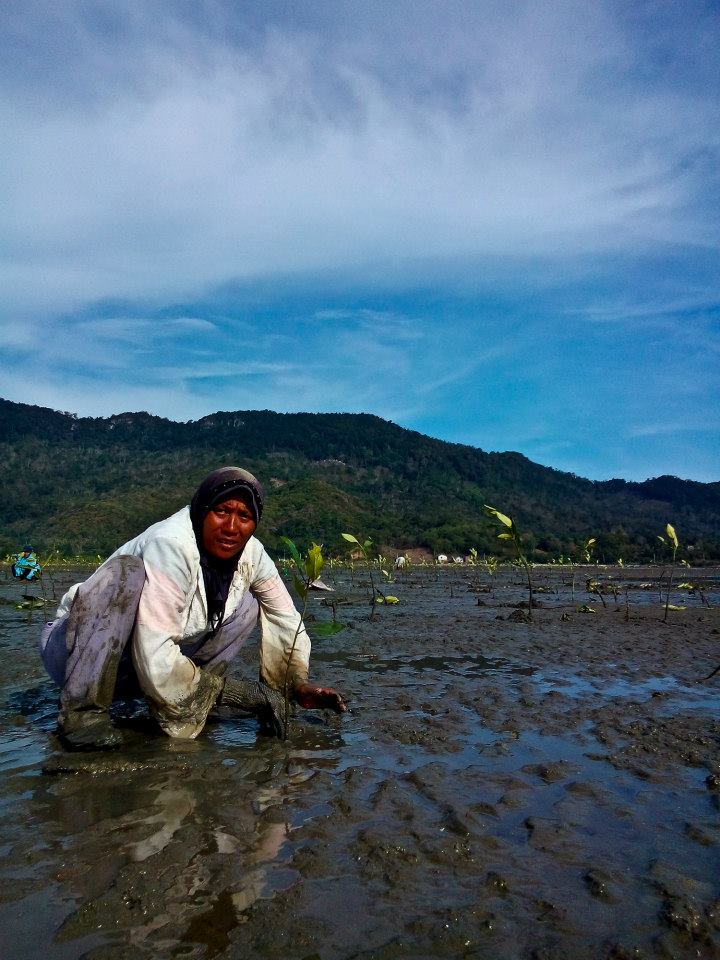
Mangrove Restoration – Maulana GOGO (Indonesia)
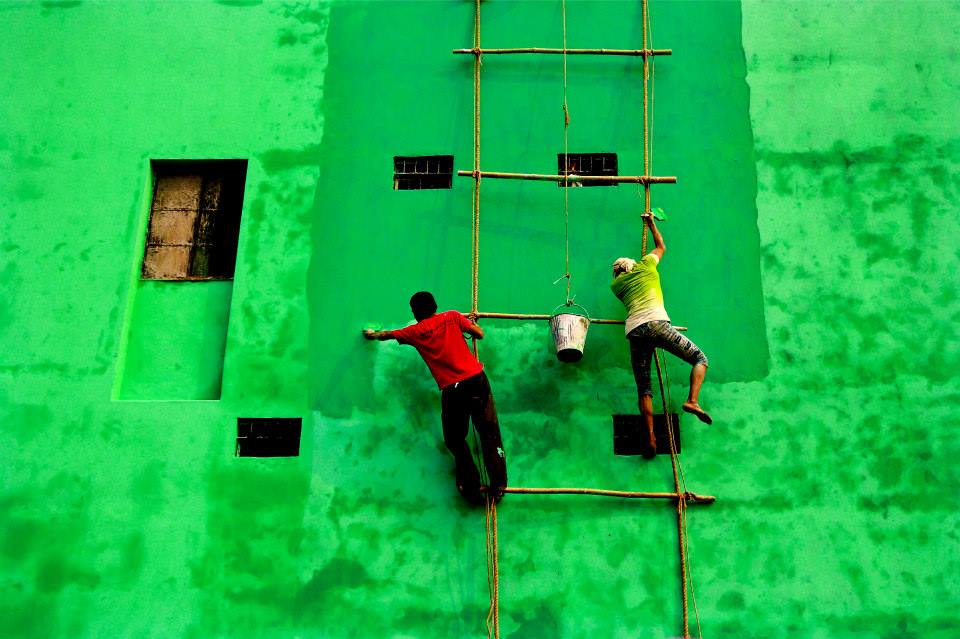
Ensure Life – Prashanta Kumar SAHA (Bangladesh)
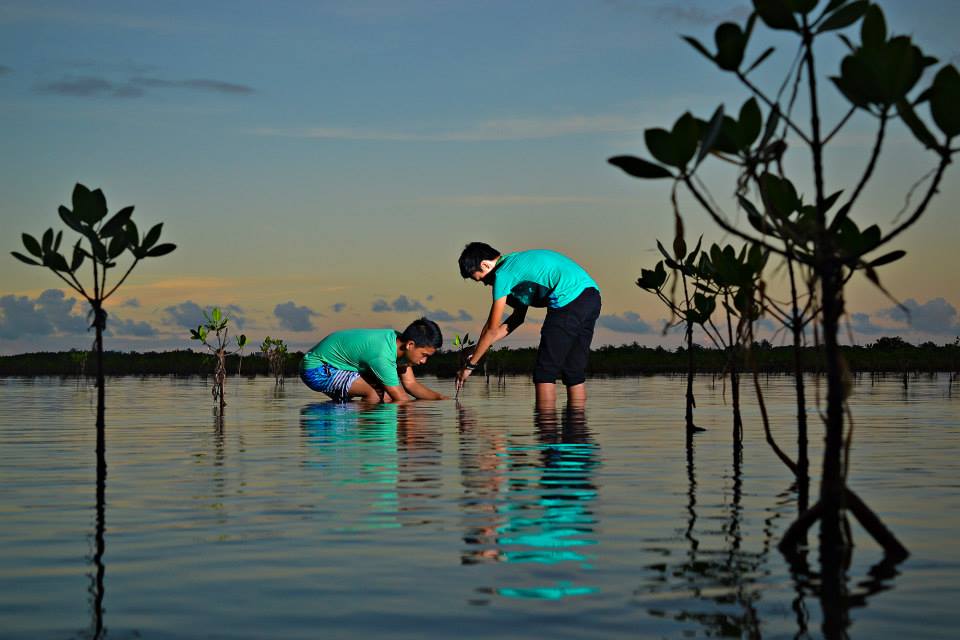
Harmony – Reu Dawner FLORES (Philippines)

Sea Erosion – SL Shanth KUMAR (India)
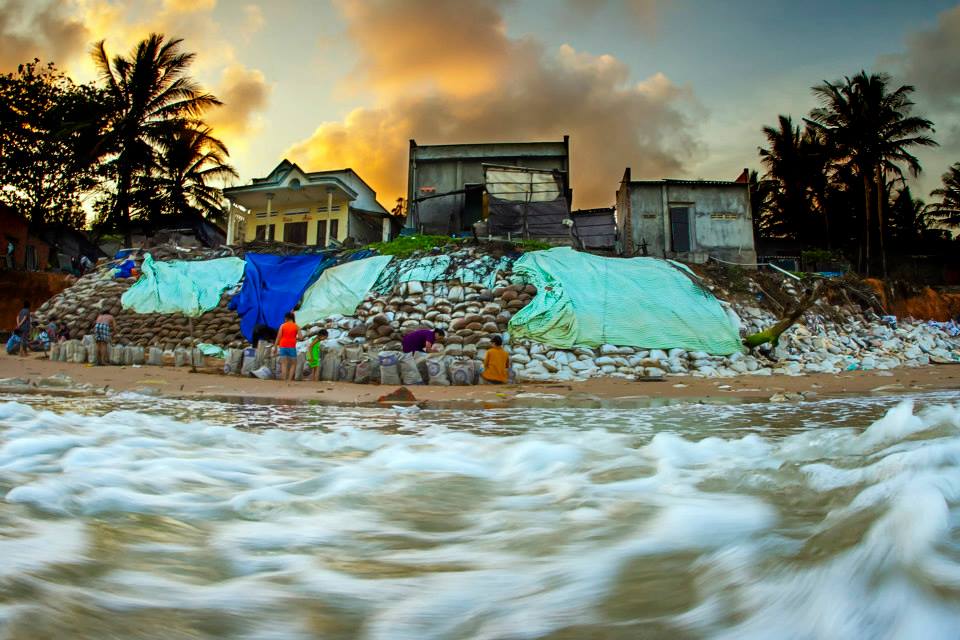
Human Within Ocean and Sky – Van Thanh PHAM (Vietnam)
APAN Photo Contest 2014

APAN wants you to take your best shot and show us: “How do you see climate change adaptation in your life?”
What is Climate Change Adaptation?
Adaptation is one of the two main policy responses to climate change; the other is mitigation (i.e. reducing greenhouse gas emissions). Adaptation measures help lower climate risks and build resilience to climate change. Many countries and communities are already putting in place such measures to adapt to the negative impacts of climate change, from building seawalls to protect against sea-level rise to planting different crops to ensure better yields.
From 1-3 October 2014, APAN will bring together over 500 adaptation practitioners and experts to find the best ways to address some of these adaptation and development challenges and more. This gathering is APAN’s flagship event – the 4th Asia-Pacific Climate Change Adaptation Forum – which will be held in Kuala Lumpur, Malaysia.
APAN Photo Contest 2014 Themes
In the APAN Photo Contest 2014, we want you to focus your attention on adaptation – and in particular, we want to see how you photographically interpret the themes we’ve set to discuss at the Forum. Below are descriptions to help you visualize:
- Mainstreaming and Transformative Change
This theme refers broadly to policy, trade and finance, technology and knowledge transfer, public–private partnerships, ethics and values, gender sensitive development, community involvement, and poverty alleviation.
- Development and the Food-Water-Energy Nexus
Under this theme, Forum participants will discuss agricultural land and water use, infrastructure, private investment, and energy, water, and food security.
- Disaster Risk Reduction and Human Security
This theme focuses on insurance, risk communication and management, health, conflict, migration, and issues related to poor and vulnerable groups.
- Forestry, Biodiversity and Ecosystems Change
Broadly, this theme covers livelihoods, traditional ecological knowledge, conservation issues, as well as community- and ecosystem-based adaptation solutions.
- Cities with an Emphasis on Coastal Development and Sea-Level Rise
This theme will look at urbanisation, tourism, heat waves, mangrove protection, sea-level rise, and Small Island Developing States.
Explore the APAN Web Portal to find out more about climate change adaptation: http://www.asiapacificadapt.net/
Ready to Enter?
The APAN Photo Contest 2014 begins on 28 July 2014.
Send us up to 3 of your best shots based on your interpretation of any of one or the 5 themes. They are somewhat technical – we understand. But your challenge is to submit photo(s) that accurately reflect the meaning of these themes – in other words, demonstrate what climate change adaptation through imagery.
The Judging Panel will select the Grand Prize winner and he or she will receive US$500 and the opportunity for his or her photo(s) to be showcased in APAN publications. Second and third prize winners will receive US$250 and US$100 respectively. The Contest ends 1 September 2014.
Want to be your own judge?
On 8 September 2014, view the top 10 photos entered at: https://www.facebook.com/asiapacificadaptationnetwork
Vote for your favorite picture and share them with family and friends. Public voting period ends 22 September 2014. The photo with the most votes will be named the APAN Photo Contest 2014 Popular Choice Award winner and receive US$250
Please read the Rules and Judging Panel for more information.
Photo Contest Rules
WHO MAY ENTER
The contest is open to all photographers (professional or amateur).
HOW TO ENTER
Each entry consists of an application form and one (or up to three) image(s). There is no entrance fee for this contest.
All entrants must register for the contest by completing and submitting the official application form provided on the APAN Web Portal and certify that the photo is their own and copyrights have not been violated. Photo entries will be disqualified without proper completion of the application form.
SUBMISSION GUIDELINES
- The photo can be taken by any kind of camera. The photo should be at least 2,000 pixels at the longest side of the image.
- All entries must be sent as hi-resolution digital image files in JPEG with minimal compression. Each image should not exceed 3 MB.
- Minimal digital manipulation (i.e. only manipulations such as color enhancement, cropping) is allowed. Excessively manipulated photos will be disqualified.
- The photo cannot be a photomontage or a collage.
- The photo must be taken in the Asia-Pacific region (i.e. countries in South Asia, Southeast Asia, Northeast Asia, Central Asia, and the Pacific).
- The photo must depict climate change adaptation.
- The photo must be submitted electronically along with the completed application form (attached to the email) and sent to contest@asiapacificadapt.net
- The submission must not contain material that violates or infringes another’s rights, including publicity and intellectual property rights.
- Each entrant is allowed a maximum of three submissions.
SUBMISSION TIMELINE
Entry period: 28 Jul 2014 – 01 Sep 2014
Contest deadline: 01 Sep 2014, 11:59PM (GMT +07:00) Bangkok Time
10 photos will be shortlisted and posted in an album on APAN’s Facebook page (APAN Photo Contest 2014: Your Vote) on 08 Sep 2014 at 10:00AM (GMT +07:00) Bangkok Time for public voting.
The two-week long voting period will commence from 08 Sep 2014, 10:00AM (GMT +07:00) Bangkok Time to 22 Sep 2014, 05:00PM (GMT +07:00) Bangkok Time
The three judges’ winners and one public choice winner will be announced on the APAN Web Portal and on APAN’s Facebook and Twitter pages on 01 Oct 2014.
The top 10 photos and winning photos will also be displayed at the 4th Asia-Pacific Climate Change Adaptation Forum.
JUDGING CRITERIA
The entries will be evaluated based on a two-tier grading scheme that passes through: [1] the APAN Regional Hub and [2] the APAN Photo Contest 2014 Judging Panel.
Each photo will be given points based on the criteria below. The maximum number of points any photo can get is 40. All entries will be first vetted by the APAN Regional Hub based on the judging criteria below:
- The relevance to the contest theme and climate change adaptation [0-10 points]
- The interpretation, creativity and the message of the photo [0 – 10 points]
- The photo composition and the quality of the photo [0 – 20 points]
Based on these criteria, the top 10 photos with the highest score will be passed on to the judges. The judges will rank their preferences and make the final decision on first, second and third prizes.
The decisions of the APAN Photo Contest 2014 judging panel are final. Submitted entries will be evaluated according to the mentioned criteria.
The APAN Regional Hub reserves the right to disqualify any photo submission that does not conform to the stipulated rules and guidelines.
The APAN Photo Contest 2014 Popular Choice Award winner will be based on a vote by the public via https://www.facebook.com/asiapacificadaptationnetwork
TERMS AND CONDITIONS
I. COPYRIGHT:
- The participant must be the author and sole owner of the copyright of each photograph submitted.
- All images submitted must be the work of the individual submitting them.
- The participant shall retain the copyright of the photos submitted in the contest. The participant shall also grant the right to the APAN Regional Hub to publish, display and exhibit their submitted photographs in its publications, brochures and other materials as well as on its website and other online platforms. The photos will be used for non-commercial purposes without payment or fee to the participant. The APAN Regional Hub will make every effort to credit photographers but we cannot guarantee that every use of the photographs will contain the photographers' name.
II. LOST ENTRIES: The APAN Regional Hub will not be held responsible for any photos lost or not received.
III. PRIVACY: By submitting photos, entrants agree that if they win, the APAN Regional Hub may use the personal information on their entry forms for publicity purposes, with the exception of street address, email address and telephone number. The winners consent to the use of their personal information by the APAN Regional Hub in publicity in all media, such as online, newspaper, television, and radio.
IV. LIABILITIES:
- By submitting photos, participants agree that no claim relating to any damage, loss, injury or inconvenience shall be asserted against the APAN Regional Hub, its networks, and the employees and assignees from any and all losses, damages, rights, claims and actions of any kind resulting from the project.
- The participant hereby indemnify and hold the APAN Regional Hub harmless from any claims, actions, proceedings costs and expenses arising as a result of any allegation that the relevant participant did not own or is not wholly entitled and authorized to allow publication and reproduction of the work by the APAN Regional Hub.
- The APAN Regional Hub reserves the right to disqualify any entries, if the contents are deemed inappropriate or against public interest.
- The Terms and Conditions above are subject to change and/or supplement by the APAN Regional Hub at any time during the submission period as and when it deems fit. The APAN Regional Hub assumes no liability whatsoever for any outcome as a result of such action.
Photo Contest Judging Panel
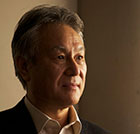
Masataka Watanabe
Dr. Masataka Watanabe is professor at the Graduate School of Media and Governance, Keio University, Japan. He was chair of UNEP Asia Pacific Adaptation Network (APAN) since October 2009 and now he serves as co-chair of APAN. Prior to joining Keio University, he was director in the division of water and soil environment at the National Institute for Environmental Studies, Japan and also he was appointed as professor, graduate school of agricultural and life sciences at the University of Tokyo. He was also visiting professor at the Institute of Advanced Studies, United Nations University. He participated to UN Millennium Ecosystem Assessment from 2000 to 2004 as coordinating lead author in the sub-global assessment. He is a member of numerous national councils and committees in Japanese Government. He was awarded for his scientific contributions including Tien Shan Prize in 2003. He received his Ph.D. degree in Civil and Environmental Engineering from Massachusetts Institute of Technology. He has authored more than 120 peer-reviewed international journal articles and two books.

Saleemul Huq
Saleemul Huq is the Director of the International Centre for Climate Change & Development (ICCCAD) since 2009 and intends to support growing capacity of Bangladesh stakeholders, while enabling people and organizations from outside to benefit from training in Bangladesh. ICCCAD runs regular short courses as well as a MSc. program in Climate Change and Development. Dr. Huq is also a Senior Fellow at the International Institute for Environment & Development (IIED) in the UK, where he is involved in building negotiating capacity and supporting the engagement of the Least Developed Countries (LDCs) in UNFCCC, including negotiator training workshops for LDCs, policy, as well as research into vulnerability and adaptation to climate change in the least developed countries. Dr. Huq has published numerous articles in scientific and popular journals, was a lead author of the chapter on Adaptation and Sustainable Development in the third assessment report of the Intergovernmental Panel on Climate Change (IPCC), and was one of the coordinating lead authors of ‘Inter-relationships between adaptation and mitigation’ in the IPCC’s Fourth Assessment Report (2007). Prior to this he was the founding Executive Director at the Bangladesh Centre for Advanced Studies (BCAS), a leading independent research and policy think tank in Bangladesh, where he was in charge of management and strategy of the organization. Before that he taught plant sciences both to under-graduate and post-graduates at Dhaka University. In 2000 he became an Academic Visitor at the Huxley School of Environment at Imperial College in London where he teaches a course on global environmental policies. He completed his BSc (with Honors) in 1975 from Imperial College, London, United Kingdom and his PhD in plant sciences also from Imperial College in 1978.
 Victor Chin
Victor Chin
Victor Chin is a painter/photographer/columnist/activist. His new paintings recreate the many moods of the sea. He is best known for his watercolour paintings of pre-war shophouses from 1982 till 1995, has turned his skills to evoking the shimmering quality of light on our tropical seas. His exhibition, called Pulau Perhentian, of 20 abstract acrylic paintings on canvas was inspired after visiting those Terengganu islands in 2002. Victor Chin works and lives in Kuala Lumpur. He is an Honorable Fellow at LESTARI in the National University Malaya (UKM).
